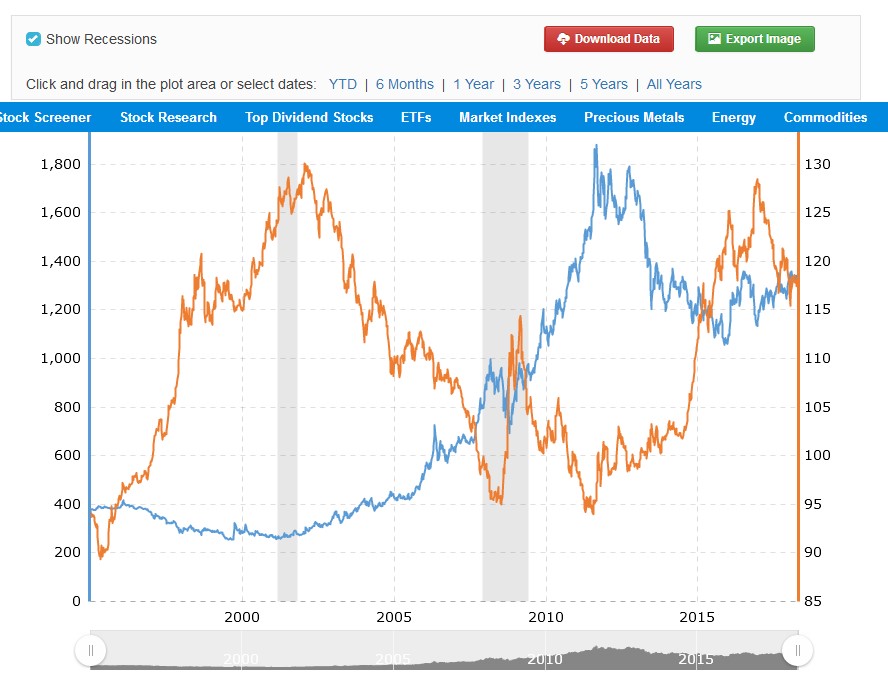The Winklevoss twins, well known for their love of everything Bitcoin, are famous for once declaring that “Bitcoin will one day become better at being gold than gold itself.”
If those claims seem a bit bizarre and distant, then recent claims by BK Asset Management's FX strategy managing director, Boris Schlossberg, that gold is “retaking its mantle as the key defensive asset against Bitcoin” will probably prove even more jarring.
They are in good company, too. Jeff Gundlach, aka the Bond King, once suggested that Bitcoin's meteoric rise in 2017 was responsible for the 10-percent fall in the Shanghai Composite.
Gundlach's sentiments came at a time when Bitcoin was fast becoming a darling for mainland punters amid expectations that it would offer a nice hedge against the yuan's devaluation and dodge China's anticorruption drive.
Weak Gold-Bitcoin Correlation
Throughout history, gold was widely considered the leading safe-haven asset because it has proved to be a reliable store of value, cannot be manipulated by interest rate policies by any single government--or worse, printed like fiat currencies such as the dollar.
Safe havens tend to increase in value or retain it at the very least when most other assets are losing it. Bitcoin's downside deviation is close to 50 percent, compared to gold's 8 percent. That fact alone makes it a tough choice for use as regular money let alone as a safe haven.
The gold and the dollar are diametrically opposed in their roles--a fact that is seen in the clear-cut inverse correlation between the price of gold and the trade-weighted U.S. dollar. Although the gold standard was scrapped in 1971, the inverse correlation between gold and the U.S. dollar still appears strong--one climbs when the other is coming down, and vice-versa.

(Click to enlarge)
Source: Macrotrends
Gold is much more resilient against Fed rates than the U.S. dollar.
Related: Meet The Hedge Fund Billionaires Club
Many traders and investors have long held the belief that gold prices bear an inverse correlation with interest rates. The reasoning here is that higher interest rates make fixed-income investments and bonds more attractive, so money naturally starts to flow from zero-yield investments such as gold into higher-yield investments such as bonds.
Yet studies have shown that correlation between gold prices and interest rates between 1970 and 2015 was only 28 percent, which is considered to be statistically insignificant.

(Click to enlarge)
Source: My Trading Buddy
The correlation between Bitcoin and gold has not been as well-studied as, say, the relationship between gold and interest rates, simply due to the fact that Bitcoin has been around far less longer.
Related: British Pound Soars To Highest Level Since Brexit
Further, any little evidence gathered over the years suggests that this relationship is speculative at best.
Generally, when overall market correlation is strong, the correlation between the pair tends to be strong as well. Likewise, when it's low so is the correlation between the two.
The one-year rolling correlation of gold and bitcoin returns was mostly positive up until 2015 when it turned negative. It is, however, important to note that the correlation averaged just 0.14 during the positive period and -0.2 during the negative period. A correlation score of 1 indicates perfect correlation, while zero indicates no correlation. The Bitcoin/Gold correlation has therefore so far been a weak relationship.
The weak relationship is largely a matter of size—and, granted, this could change as the Bitcoin market matures. Indeed, Wall Street's RBC recently reported detecting a weak inverse correlation between Bitcoin and gold once Bitcoin touched $20k.
But for now, the verdict is that gold doesn't have to reclaim its defensive mantle from Bitcoin because it never relinquished it in the first place.
By Alex Kimani for Oilprice.com
More Top Reads From Safehaven.com:
















